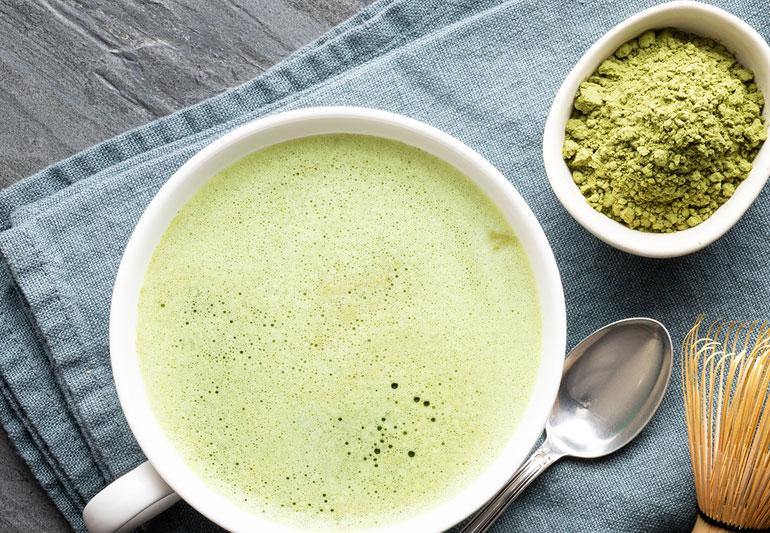Depression affects millions worldwide, showing up as sadness, fatigue, and loss of interest in daily life. But relief doesn’t always come in a pill. Recent studies reveal that L-Theanine, a natural amino acid found in green and black tea, may help calm the mind, reduce anxiety, and improve mood naturally.
At Eelite Blog, we explore the best natural remedies for depression(According to Johns Hopkins Medicine, several natural remedies for depression—including exercise, nutrition, and mindfulness—can complement therapy [Johns Hopkins].), focusing on safe, science-backed solutions that support mental wellness. In this guide, you’ll discover how L-Theanine tea works, how to use it effectively, and lifestyle tips to boost your mood and resilience—naturally and sustainably.
Main Remedy: L-Theanine tea – a natural mood booster from green tea. How It Helps: Increases brain alpha waves for calm focus. How to Use: 2–3 cups daily or 200–400 mg supplement form. Extra Boost: Combine with exercise, sunlight, and balanced nutrition.
Understanding Depression: A Global Mental Health Challenge
Depression, clinically known as major depressive disorder, is more than fleeting blues—it's a complex condition influenced by genetics, environment, and lifestyle. In the USA, where busy city life contributes to high stress, rates are rising post-pandemic, while in Europe, winter months exacerbate seasonal anxiety linked to light deprivation. Symptoms include chronic fatigue, brain fog, and physical health issues like high blood pressure from prolonged stress affecting health. Traditional treatments like therapy and medication are vital, but natural remedies for anxiety and depression are gaining traction for their accessibility and fewer side effects.
Evidence shows that lifestyle modifications can reduce depression risk by up to 57%, emphasizing the benefits of mental health through habits like healthy eating, physical activity, and social connection. These align with our transatlantic focus: In American heartlands, farm-to-table nutrition combats rural isolation, while European traditions incorporate herbal teas for winter wellness. By addressing root causes like chronic stress anxiety, natural healing for anxiety and depression promotes long-term physical well-being and mental clarity, making it an empowering complement to professional care.
L-Theanine Tea: A Natural Way to Calm the Mind and Lift Your Mood
Found abundantly in green and black teas, L-Theanine is an amino acid celebrated for its calming effects without sedation, making it one of the best remedies for stress and anxiety tied to depression. Studies demonstrate that L-Theanine supplementation significantly reduces depressive symptoms, anxiety, and sleep disturbances, offering multiple beneficial effects in chronic administration. It works by increasing alpha brain waves associated with relaxation, boosting neurotransmitters like GABA and serotonin to improve mood and cognitive function. For those in busy USA cities or dreary European winters, a daily cup provides high stress relief, reducing physiological markers of stress and enhancing emotional wellness.
Clinical trials Studies show that L-Theanine can reduce depressive symptoms and anxiety, improving sleep quality and focus [PubMed Study], including an open-label study on patients with major depressive disorder, confirm that 8-week L-Theanine use is safe and effective for stress and depression relief, also improving sleep quality. Animal models further support its role in alleviating neuroinflammation-induced depression and anxiety. Unlike caffeine-heavy drinks, L-Theanine promotes calm focus, ideal for combating brain fog in high-pressure environments.
To incorporate L-Theanine tea into your routine, aim for 200-400 mg daily, often found in 2-3 cups of green tea. Here's a table of tea options and their benefits:
Best Teas for Stress and Depression Relief (With Preparation Tips)
| Tea Type | L-Theanine Content (per cup) | Key Benefits | Preparation Tips |
|---|---|---|---|
| Green Tea | 25-60 mg | Improves mood, reduces anxiety depression | Steep 2-3 mins at 80°C; add lemon for absorption. |
| Matcha | 50-100 mg | Enhances cognitive health, provides sustained energy | Whisk powder in hot water; ideal for morning rituals. |
| Black Tea | 20-40 mg | Supports stress healing, aids sleep hygiene | Brew 3-5 mins; combine with milk for comfort. |
| Oolong Tea | 30-50 mg | Balances hormones, combats fatigue and mental health issues | Steep 4-7 mins; great for afternoon slumps. |
| Herbal Blend (with added L-Theanine) | 100-200 mg (supplemented) | Offers home remedies for anxiety and depression | Infuse with chamomile for extra calm. |
These natural remedies align with a healthy lifestyle, but consult a healthcare provider if on medications, as L-Theanine may interact with stress medicine.
Healthy Habits That Naturally Fight Depression
Beyond tea, evidence-based lifestyle habits form a foundation for depression relief, addressing the mental-physical interplay. Physical activity, for instance, elevates endorphins and self-esteem, significantly easing symptoms. Outdoor exercises like walking or hiking in nature—common in USA national parks or European forests—combine exercise and brain health benefits with forest bathing, reducing cortisol and enhancing mood.
Nutrition plays a pivotal role: A Mediterranean-style diet rich in omega-3s, fruits, and vegetables lowers depression risk by reducing inflammation. Focus on nutrition and mental health with superfoods like fatty fish (USA salmon) or walnuts (European staples) for brain health benefits. Avoid ultra-processed foods that exacerbate stress-related illnesses.
Mindfulness meditation and sleep hygiene are crucial: Practices like cognitive behavioral therapy-inspired techniques or daily affirmations build self-compassion, while 7-9 hours of quality sleep prevents chronic stress remedies needs. Social connections and moderate alcohol consumption further bolster resilience, as per large-scale studies. In rural USA or isolated European villages, community activities amplify these habits for better health benefits.
Combine Tea, Exercise, and Mindfulness for Total Wellness
For optimal results, blend L-Theanine tea with habits: Start your day with a green tea mindfulness session, followed by a brisk walk. Pair with a diet for mental health, incorporating healthy snacks to sustain energy. This integrated approach addresses anxiety over health, providing severe stress relief and preventing health diseases. Track progress with a journal to adjust for personal needs, and seek professional guidance for severe cases.
In transatlantic contexts, USA urbanites might use tea for commute calm, while Europeans leverage it against SAD. This synergy fosters life and health balance, turning remedies into sustainable habits.
Take Charge of Your Well-Being Naturally
The best natural remedies for depression, like L-Theanine tea and healing lifestyle habits, offer hope and empowerment. By embracing these evidence-based strategies, you can achieve stress cures, enhance psychological well-being, and navigate depression with resilience. Visit Eelite Blog for more on natural mental health across continents.
FAQs: Your Questions About Natural Depression Remedies Answered
What is L-Theanine, and how does it help depression? An amino acid in tea that promotes relaxation and mood improvement without drowsiness.
Are lifestyle habits effective for depression relief? Yes, they can reduce risk by 57% through diet, exercise, and sleep.
Can I replace medication with these remedies? No, they complement; consult a doctor for personalized advice.
How much L-Theanine tea should I drink daily? 2-3 cups for 200-400 mg, but start low to assess tolerance.
What other habits support these remedies? Mindful eating, social engagement, and nature therapy for comprehensive wellness.



Comments
Post a Comment
Thanks for your response,May God bless you